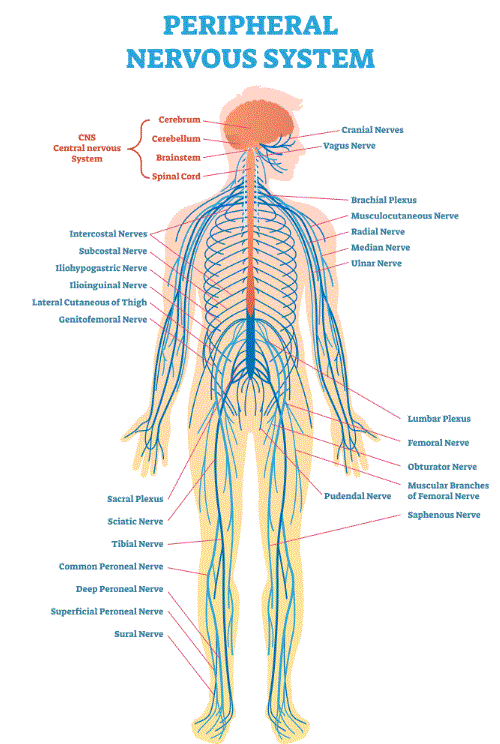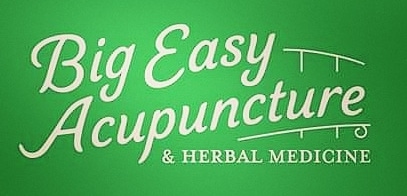 Have you ever experienced the sharp, shooting pain of a pinched nerve? Pinched nerves disrupt daily life mentally and physically. Pinched nerves limit mobility & affect strength. There are many common areas where nerves can become compressed and cause pain signaling from the compression. Pain long term can become an added trigger for stress. Acupuncture is a safe, natural, and effective solution.
Have you ever experienced the sharp, shooting pain of a pinched nerve? Pinched nerves disrupt daily life mentally and physically. Pinched nerves limit mobility & affect strength. There are many common areas where nerves can become compressed and cause pain signaling from the compression. Pain long term can become an added trigger for stress. Acupuncture is a safe, natural, and effective solution.
Will acupuncture help a pinched nerve? The answer for many is YES! In this article, we’ll explore the science behind acupuncture and how it can provide relief for this common condition.
 What Is a Pinched Nerve?
What Is a Pinched Nerve?
A pinched nerve occurs when too much pressure is applied to a nerve by surrounding tissues, bones, cartilage, muscles, or tendons. Many areas of the body can experience issues with a pinched nerve. A nerve’s signaling can be disrupted by being either stretched, shortened, compressed, or crushed. This pressure disrupts the nerve’s function, leading to symptoms like pain, tingling, numbness, weakness, or mobility loss.
A few types of pinched nerve conditions include:
- Bulging Disc – Spinal discs being compressed and being pushed outwards from the spinal column.
- Nerves between each disc have a spacing usually where nerves will send signaling from the central spine to other areas of the body including internal organs.
- Bulging of the discs either towards the frontal or posterior portions of the body will shorten the space nerves have to send their signal between each disc along with shortened muscles along the spine further adding to the bulging problem and the pressure along the spinal column.
- Herniated Disc – soft center of a spinal disc pushes through a crack in the tough exterior casing of the disc.
- Carpal Tunnel Syndrome: Compression of the median nerve in the wrist
- Local compression by scar tissue or muscle compression in the wrist and other areas along the median nerve leading to the central spine
- Cubital Tunnel Syndrome: Pinched ulnar nerve near the elbow causing pain, numbness, tingling, or weakness in the hand or ring finger, especially when the elbow is bent.
- Cervical Radiculopathy – Cervical radiculopathy is a pinched nerve in the neck caused by compression of a cervical nerve root, resulting in neck stiffness, radiating arm pain, and hand tingling.
- Sciatica: Compression of the sciatic nerve, which runs from the lower back down to the legs
- Repetitive Muscular Strain: Overuse of muscles or tendons can lead to nerve compression or spasm.
How Does Acupuncture Work?
Acupuncture combines ancient Chinese medicine with modern anatomical knowledge to support nerve function, mobility, strength, and overall wellness. Acupuncture uses thin needles inserted into specific points, with traditional acupuncture focusing on unblocking and moving energy, or “Qi,” along the body’s channels. Sports Medicine Acupuncture targets motor points and nerve pathways to improve nerve signaling, helping the body restore proper movement, strength, tension, and physical function. These two approaches compliment each other, enhancing their combined effectiveness.
Modern research highlights multiple ways acupuncture supports pain management. By stimulating the nervous system, acupuncture activates pain-relieving mechanisms, releasing endorphins and neurotransmitters that reduce pain and inflammation. Electro-acupuncture uses targeted frequencies to reset dysfunctional nerve signaling within their pathways of action. Acupuncture also improves blood flow, which helps deliver oxygen and nutrients to affected areas, reducing muscle spasms and promoting relaxation around the nerve. This muscle relaxation helps relieve pressure on compressed nerves, which is especially beneficial in cases of pinched nerves.
How Acupuncture Helps Pinched Nerves:
- Pain Relief: Acupuncture releases natural painkillers, providing significant relief from the sharp, shooting pain typical of pinched nerves
- Reduced Muscle Tension: Acupuncture releases tight bands of muscles that pinch nerves & radiate pain. Reducing muscle tension increases the flow of fluids to the tissues and helps with normal signaling patterns of the nerves.
- Improved Blood Flow: Acupuncture boosts circulation to the affected area, bringing oxygen and nutrients that support tissue repair, reduce spasmed areas, and help reduce pressure on irritated nerves.
- Reduced Inflammation: It modulates the inflammatory response, decreasing swelling and pressure around the nerve.
- Improved Nerve Function: Enhanced blood flow and reduced muscle tension aid in restoring normal nerve function, relieving numbness and weakness.
- Enhanced Mobility & Strength: Acupuncture improves range of motion & strength. Less compression of nerves leads to easier mobility & increased signal to muscles for strength for those with pinched nerve issues.
Clinical evidence and in-clinic observation suggest acupuncture is an effective treatment for pinched nerves, offering a holistic approach to pain relief and functional improvement.
What to Expect During Acupuncture Treatment
If you decide to try acupuncture for your pinched nerve, here’s what you can expect:
- Initial Consultation: Your acupuncturist will take a detailed history of your symptoms and overall health to develop a personalized treatment plan. Mobility & strength of the upper and lower body will also be assessed.
- Needle Insertion: The acupuncturist will insert thin, sterile needles into specific acupoints. You may feel a slight tingling or warmth, but the process is generally painless. The insertion can be either quick releases of muscle tissue, retained needles, or a combination depending on your treatment plan. Electro-Acupuncture is applied as needed.
- Relaxation Period: The needles will stay in place for ~20 minutes while you relax. Many patients find this part of the treatment very calming.
- Follow-Up Sessions: Multiple sessions are often needed for optimal results. Your acupuncturist will recommend a treatment schedule based on your condition.
How Many Treatments Will I Need?
The number of treatments depends on a few factors:
Your Symptom Stage (Relief → Correction / Root Cause → Maintenance)
Relief: calming pain, tension, or nerve irritation
Correction / Root cause: correcting movement, strength, or structural issues
Maintenance: preventing flare-ups and supporting long-term function
Acute conditions:
If you’re dealing with recent injuries or sudden issues within the last few months, you may notice significant improvement after just a few sessions. Typically acute conditions require only 1–5 treatments compared to long-term issues.
Chronic conditions:
Chronic issues or long-term systemic conditions usually require more sessions. A typical plan involves 2 visits per week for the first 2–3 weeks, with treatments spreading out as you progress. Chronic issues often need more total sessions and may benefit from follow-up or maintenance care.
Maintenance:
Many patients choose occasional visits to keep pain from returning and to support active lifestyles.
We’ll regularly reassess your progress and adjust your treatment plan as you improve.
Conclusion
So, Will acupuncture help a pinched nerve?
The answer for many is YES! Acupuncture offers a natural, non-invasive way to alleviate pain, reduce inflammation, and improve nerve function. If you’re struggling with a pinched nerve, consider consulting a licensed acupuncturist to see if this ancient practice could be the key to your relief. Always consult with your healthcare provider before beginning any new treatment to ensure it’s appropriate for your specific condition.
Experience the benefits of acupuncture for pinched nerves. Schedule your session and feel the difference!
If you’re interested in learning more about how acupuncture can help with pinched nerves or other health conditions, contact us at Big Easy Acupuncture & Herbal Medicine to schedule a consultation. Our experienced practitioners are here to guide you on your healthy mind & body journey.
Phone: 504-650-0027


